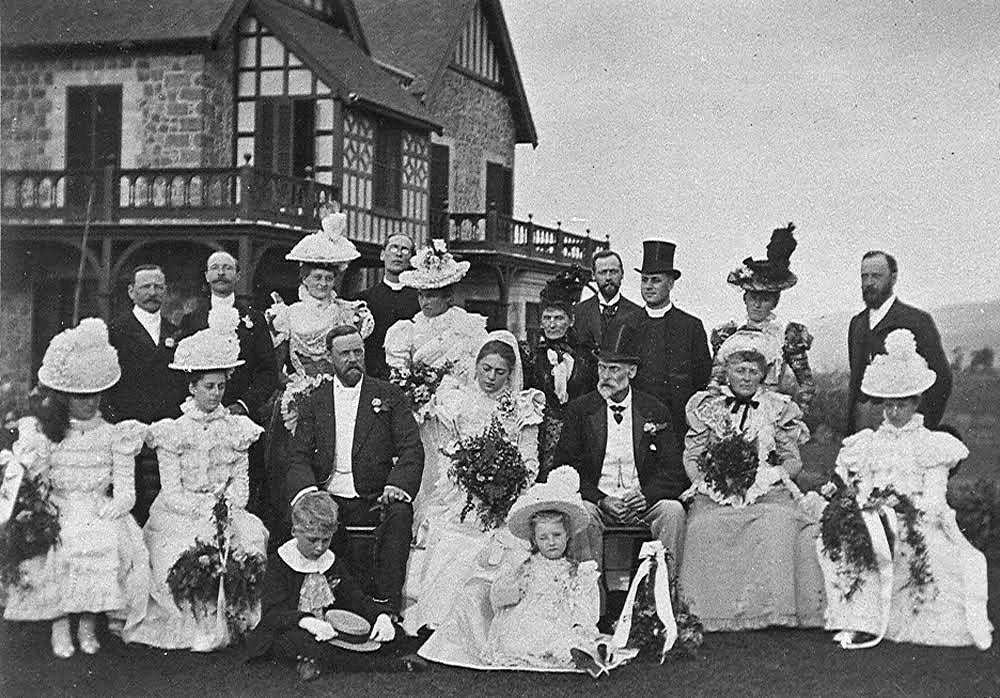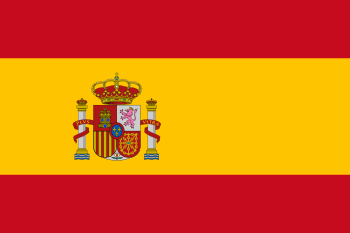
ONE OF THE most rewarding items historians can come across is a diary or letter penned by a character who figures prominently in the story.
In my previous article I recounted that Colonel Owen Peel Wethered booked into the Grand Hotel Taoro whenever he was visiting Tenerife. He kept a close eye on how the construction of his villa was progressing. We know for certain that on one occasion he brought with him his niece, Miss Edith Drake, his sister’s daughter, who had just turned 28 years old. How do we know this? Well, she wrote a charming letter home to her mother after arriving in Tenerife.
I hope that the reader will find that the few extracts that follow not only define Edith’s character but bring to life the culture and way of life of the Orotava Valley during this period of settlement by the health seekers.
The Colonel and his niece disembarked at Santa Cruz. Edith had been quite sea-sick throughout the journey and was confined to her cabin. She was in good company as Charles Darwin suffered the same malady at the start of his voyage on the Beagle in 1832 and was too ill to set foot on the island.
English Grand Hotel, Puerto de Orotava, Teneriffe. Oct 28, 1894
My own most precious Darling
At about 9.30 a.m. on Friday, October 26th we left the ‘Kaikoura’. She had anchored a few hundred yards from land, and we went ashore in a small boat. Such a queer looking line of Spanish boys were standing on the landing steps, one saucy little urchin looked up at me and said: “Ta ra ra boom di ay” with great pride! Evidently, the only English he knew.
The Colonel had his own horses and trap waiting for them at the quay side.
Before we started, Uncle Owen, to my great amusement, introduced me formally to his Spanish coachman who bowed and took off his hat. Uncle O says that the Spaniards are very proud; if you come down on them with grand English ways, and lord it over them, they will hate you and be very nasty, but if you treat them as your equals or even superiors and in a friendly way, they are the most loving, kind-hearted people imaginable. There’s nothing they won’t do for anyone who treats them well. In speaking to even a beggar, you must say: “Your Grace!”
Uncle Owen would have his little joke. Could this be the same man who’d caused such havoc at the Library Committee meeting?
Edith describes the journey to Puerto Orotava and the approach in glowing terms. Then continues:
It did one good to see Uncle Owen; he was like a schoolboy out on a holiday! He didn’t seem to know what to do with himself, he was so intensely happy to get back, so proud of it all and so delighted to see even the peasants. We drove first to see Mrs Boreham who nursed Ivy. (Ivy was one of the Colonel’s daughters). Her house is quite near the Hotel. It is impossible to describe her garden, every plant, shrub and tree seems weighed down with flowers of every size, shape and colour imaginable. Uncle Owen was so excited at seeing them again and didn’t seem to know how to tear himself away but it was getting late for him to be out and about so we couldn’t stay long.
When we got to the hotel, you never saw such a welcome as we had. The Spaniards seemed to quite worship him! They don’t seem to do things by halves and show their feelings very much. I could hardly help laughing, all the hotel staff seemed to be on the steps and the manager Don Domingo had been waiting in the garden all afternoon and had not had any lunch, he was so afraid of not being there to welcome him. All the Spanish housemaids came running as fast as they could, their white head dresses streaming behind them; even they seized Uncle O on all sides, shaking his hands in both theirs, squeezing his arms and anything else they could get hold of and shouting together at the very tops of their voices, in Spanish, laughing and making such a noise. Of course, I couldn’t understand a word. As soon as we had had some tea, I went over to Miramar with Uncle Owen. It is quite close and Mr and Mrs Hamilton-Boyle are there now.
Due to her sea sickness, Edith was confined to bed and her recovery took a couple of days during which she found herself in some very comical situations with the Spanish maids. When she surfaced she and Uncle Owen rode out.
Yesterday afternoon Uncle O drove me to see his house “Robado”. They have built up to the top of the first storey. Very nice indeed, built of a pretty dark grey, native stone, with a white stone round the windows and doors. It looks in the distance like Bath stone. It is very difficult at this stage to judge the size of rooms, but they will be very large, the drawing room is larger than Uncle O’s room at home, but he tells me you saw the plans, so know all about the house.
Unfortunately, the final sheet(s) of this warm and amusing letter are missing.
But we will save our first impression of Edith and set the scene. In the last article we saw the Rev Arthur Humphreys, in 1902, resign his position as Chairman of the Library Committee. This was in protest at the conduct of Colonel Wethered who corralled the committee into accepting his choice of land to build the new Orotava Library. Humphreys was a Welshman, born in 1863 at Connah’s Quay, Flintshire; a man of principle who in 1899 had transferred from Spezzia in Italy to Puerto Orotava. He had moved abroad soon after being ordained when he accepted a Chaplaincy in Switzerland. Due to his delicate health, Arthur Humphreys was searching for somewhere special to serve God. His appointment as Vicar to the Anglican Church in Puerto Orotava was ideal.
It is not quite clear when Edith Drake returned to the island but she was present at the famous meeting when Arthur Humphreys resigned in 1902. She may have admired Arthur’s moral stance against her uncle or she recognised a good match when she saw one. For whatever reason, Miss Edith Drake moved quickly. At the AGM for 1903 she was appointed Librarian and for the following year she and Arthur attended every meeting, most of which were held in the Parsonage. Early in 1905 Miss Edith Drake became Mrs Humphreys. She was 39 and Arthur 42. No mention is made of their nuptials in the Minute Book. No congratulations. At one meeting Miss Drake, Librarian, signed in as present. The following meeting, Mrs Humphreys, Librarian, appears.
It’s very sad when, with the benefit of hindsight, we know what life had in store for this happy couple. Edith had suffered already when her cousin Thomas Wethered died from tuberculosis, aged 31 in November 1903. He was staying with his parents at El Robado. It was at about this time that the medical men had noticed that the climate in the Orotava Valley was not the answer to lung and chest problems as advertised by the Grand Hotel Taoro. Soon afterwards the Colonel’s own tuberculosis began to take hold.
The Library continued without much incident until 1908 when, at a Committee meeting held at the Parsonage on March 31, the Rev and Mrs Humphreys announced that, due to them leaving the island, they were resigning their posts. The remaining members expressed their thanks for all their hard work and proceeded to elect new office bearers. Minutes can be very cold.
Thirteen days later Colonel Owen Peel Wethered succumbed to his tuberculosis and died at El Robado. He was buried alongside his son, Thomas, in the British Cemetery. The Colonel was one of the few men who came to Tenerife for health purposes and reached his three score years and ten. Without his financial input the Orotava Library would have taken several years to amass the funds necessary to complete the project.
In November 1908 at the AGM the Committee referred to the resignations of the Rev and Mrs Humphreys and it was pointed out to all present that: “…the members of this library are under a very great obligation to Mr Humphreys, with whom the idea of having a Public Library originated and without whose persistent efforts to enlist the sympathy and support of the Community, the project would never have been realised.”
Mrs Humphreys was not omitted from the praise and received the Committee’s heartiest thanks on behalf of the members. Surprisingly, the death of the Colonel was not officially recognised, not at the AGM or the previous Committee meeting. What seems totally bizarre is that the last paragraph in the minutes of the AGM for 1908 states: “…that this meeting begs to acknowledge its indebtedness to Herr Alfred Voerster, Leipzig, for a donation of £5 worth of German Books presented by him to the Library.”
Perhaps the death of the Colonel was a set-back to the Humphreys’ plans. The President, Osbert Ward, had announced at the AGM that their resignations were due to Arthur’s ill health. He had also resigned as vicar and was replaced by the Rev Andrews who was co-opted on to the Library Committee before he had chance to get his land legs. Maybe he was informed of the “tradition” and was voted in before he could discover that this was not the case.
Whatever happened to the Humphreys?
We know that Arthur died on July 15, 1913 and is buried in the British Cemetery in Tenerife. He was 50. This seems to point to the fact that they stayed in Tenerife, cancelling their original plans. The only clue we have is that Arthur’s obituary in the Flintshire Observer reports that: “We regret to record the death of the Rev Arthur W. Humphreys MA, who had until recently been the English chaplain at Puerto Orotava, Teneriffe, Canary Islands. He passed away at Puerto Orotava on the 15th inst. after a painful illness.”
We also know that Edith (Drake) Humphreys lived to a good old age in Tenerife and is buried alongside her husband. She died in December 1953 aged 87.
We have one true anecdote as recorded by Annette Reid: “Mrs Humphreys when widowed lived in Casa Zamora, adjoining the British Club. She died, a much esteemed old lady some years after the end of World War Two. The present writer has a vivid recollection of this stalwart and courageous personality, although partially bed-ridden, rising from her couch in order to go to the Taoro Hotel, where in front of the astonished multitude, she addressed herself to General Francisco Franco, who was on a visit to Tenerife.”
That was in 1950 and Edith was 84. Oh Annette. You were too much of a lady to tell us what Edith said.
Perhaps it was to tell El Caudillo that the Colonel had a bigger welcome from the Taoro Hotel staff in 1894 than he had earlier that day; followed by a verse of “Ta ra ra boom di ay”.

 Please see
Please see